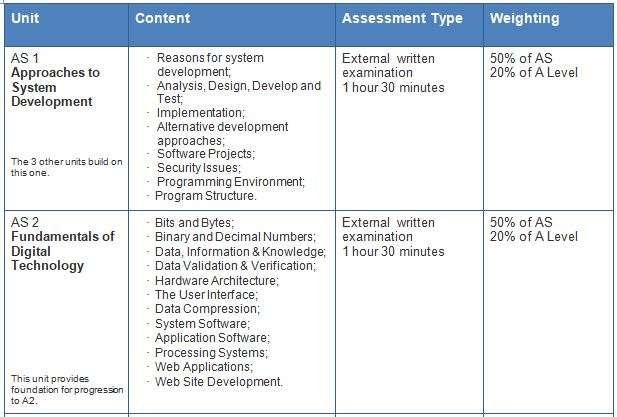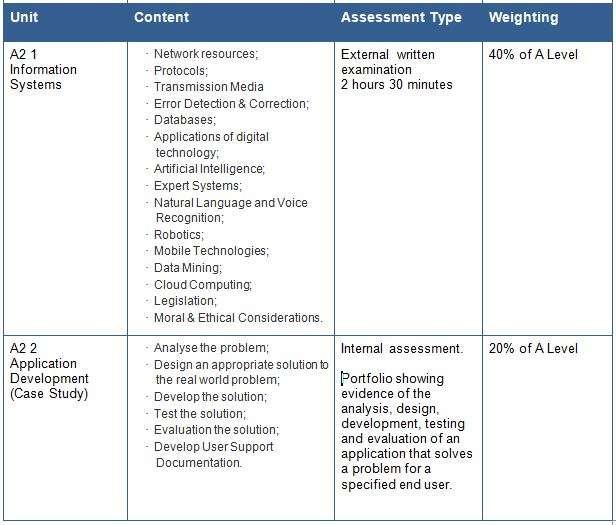Specification/Exam Board: CCEA
Criteria for Entry: Grade B or above in GCSE Digital Technology
Digital Technology incorporates aspects of Computer Science and Information Technology. It explores how we can use technology to create, store, process, analyse and present information in a digital context. This includes computer architecture, networks, web technology, digital media, programming tools and software applications.
Digital Technology explores how Information and Communication Technology is used to store, process and present information efficiently and accurately.
The influence of digital technology in all aspects of our lives continues to accelerate. Current and emerging technologies and information services are transforming how we communicate with each other, how we work and the ways we learn. It is essential that we can understand how this technology works in order to make proper use of it. It is also necessary to investigate and understand security issues in order to keep our data information systems secure from hackers or to recover data in the event of a disaster.
GCE Digital Technology gives students opportunities to develop advanced skills in a range of development environments and apply these to relevant work-related scenarios. Students will also acquire other skills valued in further and higher education, as well as in the workplace; these include research, investigation, analysis, communication skills, problem solving and working with others.
This qualification is for students who are interested in current and emerging technologies and the impact they have on our business and social lives and who wish to utilise them effectively. It is likely to appeal to all, but particularly those students who enjoyed studying ICT, Mathematics, the Science or Technology and Design at GCSE.
Summary of Unit
AS-Level

A2 Level


